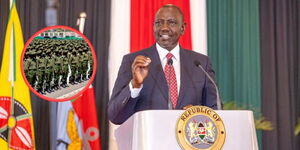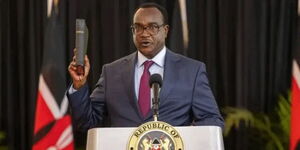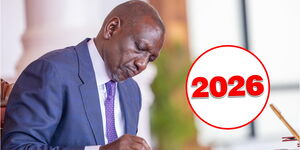HIV, cancer, and tuberculosis (TB) patients in Kenya have called upon the Members of Parliament to review the Kenya-United Arab Emirates Comprehensive Economic Partnership Agreement (CEPA) signed on January 14, 2025, citing the lack of public participation.
The patients have faulted the MPs for passing the agreements and then taking it through public participation instead of beginning with the public input first. This move is worrying more patients who fear it will impact their ability to afford the medication.
Through Eco News Organisation, the patients argue that weakness in the law is allowing the public participation provision in economic agreements to only come into effect after Parliament has signed the agreement, which is costing the lives of Kenyans depending on the medicine to survive.
According to the Eco News organisation, which is leading the process of streamlining the agreement, some sections in the agreement are issuing a few companies authorisation to manufacture and sell some medicines for more than five years.
The organisation argues that the move is giving some of the manufacturers a monopoly that would increase the prices of these medicines.
''We have people that spend Ksh250,000 in 21 days, but as per this agreement, these prices can grow up to 10 times more, that means in 21 days somebody will spend around Ksh2.5 million,'' an official in the organisation explained.
It is feared that this agreement is going to make it difficult for these patients to continue fighting to remain alive.
Echoing the organisation's concerns, Inuka Kenya, another organisation, argued that despite the agreement's promises of trade growth, CEPA lacks clear provisions for tariff reductions on Kenyan exports or improved labour mobility. It risks undermining access to affordable medicine while offering minimal benefits in return.
In January, President William Ruto and His Highness Sheikh Mohamed bin Zayed Al Nahyan, President of the United Arab Emirates, presided over the signing of CEPA to extend the economic relations between the two nations.
The agreement aimed to eliminate trade barriers, simplify customs procedures, and promote industrialisation and regional value chains.
While the agreement focuses on trade, investment, and economic cooperation, its conditions on pharmaceutical imports and intellectual property rights will influence drug pricing and access.
CEPA is strengthening patent protection for certain pharmaceutical companies, limiting the ability of Kenya to import or produce generic versions of life-saving medications, leading to higher costs.
The patients are now calling on the MPs to intervene before the situation takes an ugly turn for them.












